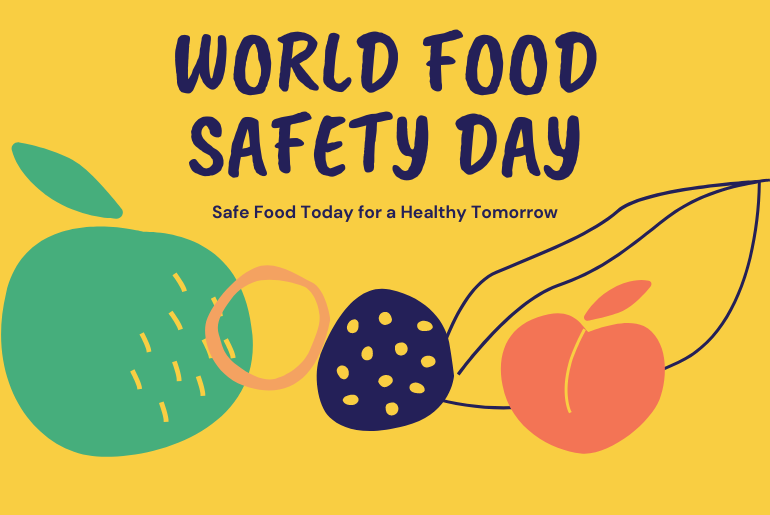
Food safety is of paramount importance as it directly affects public health. Improper handling, storage, or preparation of food can lead to foodborne illnesses, causing serious health complications. It is crucial to maintain high standards of food safety to prevent the spread of diseases. To sustain life and advance good health, it is essential to have access to safe and nourishing food.
Food hygiene refers to all sanitary practices that are implemented to guarantee that food is free of pathogens and other contaminants that cause pollution or sickness. Food safety involves the practice of handling, preparing, and storing food in a way that reduces the risk of foodborne sickness and infection.
Foodborne illnesses are a major global cause of morbidity and mortality as well as a critical barrier to socioeconomic growth. Foodborne diseases are typically caused by bacteria, viruses, parasites, or chemicals that enter the body through contaminated food. It also creates a vicious cycle of disease and malnutrition, particularly affecting those under-5, the elderly and the sick. Globally, 40% of foodborne illness deaths occur in children under five, resulting in 125 000 deaths annually. In Nigeria, there are an estimated 173 million cases of diarrhoea caused by foodborne illnesses and about 33,000 death as a result of these illnesses.
Implementing a range of measures and practices along the full chain of food production, processing, distribution, and preparation is necessary to ensure food safety. According to WHO, here are the five keys to safer food:
- Personal Hygiene: In order to handle food properly, hygienic procedures must be followed. This involves washing hands with soap and water before and after handling food, particularly after using the toilet, coming into contact with raw meat, poultry, or eggs, or handling garbage. To avoid cross-contamination, frequently clean and sterilize equipment, utensils, and surfaces.
- Separate Raw and Cooked: To avoid cross-contamination, raw and cooked foods should be kept apart. Ready-to-eat goods like fruits, vegetables, and prepared meals should be kept apart from raw meat, poultry, fish, and eggs. To prevent bacterial contamination, store cooked and raw foods separately in the refrigerator.
- Cook thoroughly: Ensuring that food is cooked thoroughly helps kill harmful bacteria and parasites. It’s crucial to prepare food at the proper temperatures to ensure safety.
- Keep Food at Safe Temperatures: Temperature control is crucial to prevent the growth of bacteria in food. Perishable foods, such as meat, poultry, seafood, dairy products, and prepared foods should be refrigerated at or below 5°C, while hot food should be kept at or above 60°C.
- Use Safe Water and Raw Materials: The quality of water and raw materials used in food preparation directly impacts its safety. This emphasizes the importance of using safe and clean water for drinking, cooking, and cleaning.
Contaminated food can lead to illnesses such as diarrhea, vomiting, stomach cramps, and in severe cases, even hospitalization or death. By adhering to proper food handling, storage, and preparation techniques, we can significantly reduce the occurrence of these diseases.
Promoting food safety and hygiene practices is a collective responsibility. Individuals, food businesses, Private sectors, regulatory authorities, and the government must work together to ensure the highest standards are met. By doing so, we can safeguard public health, prevent foodborne illnesses, and enhance the well-being of Nigerians.
